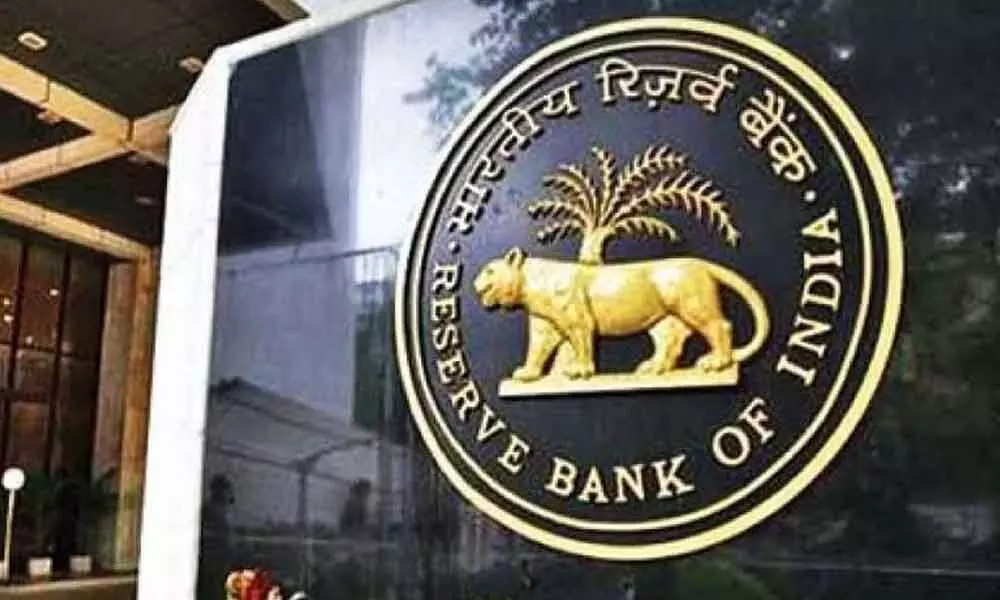New RBI regulations will put a tight check on pure play market places
Recommendations such as auditable logs for every action that a user performs on the lending app will be a game changer for digital lending in the long run, says experts
image for illustrative purpose

The report of RBI's Working Group on digital lending seeks to safeguard consumers from unregulated digital lenders who have the potential to exploit borrowers with unfair or predatory terms
Mumbai: Experts believe that new regulations on digital lending will put a tight check on pure play market places. They also feel that recommendations such as on auditable logs for every action that a user performs on the app will be a game changer for digital lending. Of late, RBI has released the report of the Working Group on digital lending including lending through online platforms and mobile apps.
Raman Kumar, Founder and Chairman, CASHe, a credit-enabled financial technology platform, says, "Digital lending has huge potential in a mass consumer market like India in influencing consumer spending patterns and driving the bulk of India's consumption. However, a key deterrent is a 'perceived' lack of regulation when dealing with pure play platform companies and new credit products that the consumer is exposed to, like EMI-based purchases or otherwise called BNPL."
The new regulations will put a tight check on pure play market places and platform companies who do not observe stringent and regulated reporting standards while selling digital lending products, he said.
Recommendations such as on auditable logs for every action that a user performs on the app, will be a game changer for digital lending in the long run.
Gaurav Chopra, founder and CEO, IndiaLends (a fintech) and founding member of Digital Lending Association of India (DLAI) said, "Recommendations such as on auditable logs for every action that a user performs on the app, will demolish many existing loan sharks and curb unfair practises."
Moreover, the recommendation for digital lenders to provide a key fact statement in a standardised format including the annual percentage rate will give a better perspective to borrowers about the high percentage rate they are willing to bear. Overall, the report seeks to safeguard consumers from unregulated digital lenders who have the potential to exploit borrowers with unfair or predatory terms, he added.
As a founding member of DLAI, IndiaLends abides by the strict code of conduct as implemented in May 2020, which is in alignment with the suggestions of the working group. According to Chopra, "We have always been adhering to all the standards recommended including transparency in taking consent on data collected from the borrower and prospective borrower, storing data locally in India and algorithm features used."
In the past year, there has been a drastic surge in digital lending, which has raised many question marks on the business practices of lending platforms. As per fintech firms, currently, the industry is seeing many unregulated digital lenders operating in the space, who do not even have basic KYC checks in place.
Ankit Rata, Co-founder & CEO, Signzy, said, "The new norms proposed by the RBI will significantly enhance how lending apps and platforms ensure customer safety and move away from unethical business conduct. We believe that if the recommendations are passed, it will not only help protect consumers but also restrict breaches of data privacy while curbing fraudulent transactions."
The RBI report on digital lending is a significant step towards creating a safer digital lending ecosystem. Lalit Mehta, Co-founder and CEO, Decimal Technologies, says, "Digital lending innovation is crucial for the country as it has the potential to address the credit gap, especially among MSMEs and the population living in underbanked areas. Integrating protection of consumers and transparency into the digital lending landscape will significantly increase the number of people with access to formal banking and sources of credit, eliminating the informal players."
Another important point to note is the report's focus on encouraging innovations - this can lead to growth for products that address the specific needs of the underserved that do not always have the documentation required by traditional financial institutions for a loan application. For instance, Saarathi, Decimal Technologies' AI-enabled digital lending marketplace, digitises the entire loan journey, from beginning to end, and addresses risk through AI-based assessment.
The process is completely online and transparent that helps in reducing the potential of fraud and offering our customers a quick and personalised experience. The industry is looking forward to more positive developments from the working group that will further improve the entire ecosystem.

